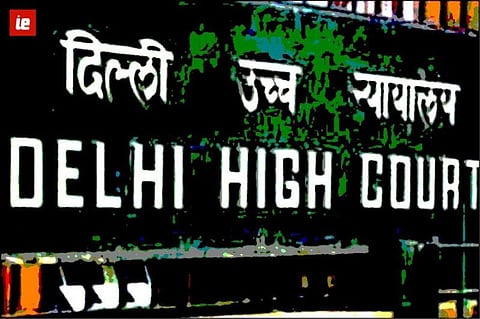
- Home
- NewsGram USA
- India
- न्यूजग्राम
- World
- Politics
- Opinion
- Entertainment
- On Ground
- Culture
- Lifestyle
- Economy
- Sports
- Sp. Coverage
- Misc.
- NewsGram Exclusive
- Jobs / Internships
- Interview

New Delhi, August 22, 2017: Lav Aggarwal, the Joint Secretary of the Ministry of Health & Family Welfare, delivered a presentation in the High court of Delhi to justice Manmohan. The subject of the presentation was National Policy for Treatment of Rare Diseases and it comprised all the significant details.
He pointed out that there does not exist any particular way to define rare diseases due to the absence of epidemiological data. Aggarwal added that a requirement of calculating our estimate exists as the current estimates cannot be depended upon. Along with this, he also indicated that the need of the hour is to make a balance between the primary issues of the health of the public.
While delivering his presentation, he said, "The biggest challenge with rare diseases is that they have mimicking symptoms of other diseases and thus, take years to get diagnosed. Moreover, there is a low pool of patients for research and hence, in the process of covering up for the cost of R&D, the treatment is expensive. Thus, strong measures need to be taken to make the diagnosis and treatment process easier." He added that considering aforesaid, the treatment of these rare genetic illnesses requires funds of about Rs 100 crore to initiate with as proposed by the policy. As mentioned in the National Health Mission, the governments at the state level must take a step forward to request the funds needed along with the names of diseases which can be provided by the central government from the corpus of Rs 100 crore.
Justice Manmohan highlighted that the corpus fund of Rs 100 crore mustn't get lapsed. There is a possibility of this fund getting wasted as the cycle of the financial year might now be starting from January and ending in December.
Aggarwal recommended that in order to let the patients benefit directly, it would be a good step to keep the money handy for hospitals such as AIIMS. In contrast to Aggarwal, the Justice suggested that it will be better to allow money into a revolving fund in order to earn interest on this amount.
"The Honourable Court is very sensitive to the immediate implementation and utilization of the Rs. 100 crore corpus. It also rightly mentioned that the fund may be allocated and transferred to AIIMS and immediate steps need to be taken by Health Ministry to form medical expert committees of physicians at central and state levels. The states should screen and recommend patients based on standard formatted parameters and severity of the disease. " said Manjit Singh (President, Lysosomal Storage Disorders Society). He said that the allocation of Rs. 100 crore needs to be revised and carried forward in the coming financial year as this fund is less to provide treatment to all the patients at present diagnosed with a rare disease.
The policy proposed the formation of an Inter-ministerial consultative committee along with a technical cum administrative committee. The former committee would be given the task of coordinating the initiatives undertaken by various departments and ministries. The task of the technical committee would be to manage and release the corpus funds as well as to develop technical requirements to identify and treat rare diseases. It will be set up at both the state and national levels. The committees will be formed and set up before the coming three weeks, i.e, last week of August.
Justice Manmohan, while appreciating the efforts taken by the Ministry commented, "The presentation has been very helpful in understanding the concept of rare diseases. However, some urgent orders are required to make the National Policy functional at the ground level. The two committees need to be appointed within a period of three weeks. The Ministry is directed to file a status report on or before November 30."
Jurist Advocate Ashok Agarwal has been battling for the patients of rare disease and in his statement, he said, "The National policy is a landmark step. However, the policy can only be tested on the basis of the actual number of patients getting treatment. The patients should not start applying to the Delhi government for treatment and these applications should start getting processed."
-prepared by Harsimran Kaur of NewsGram. Twitter @Hkaur1025
